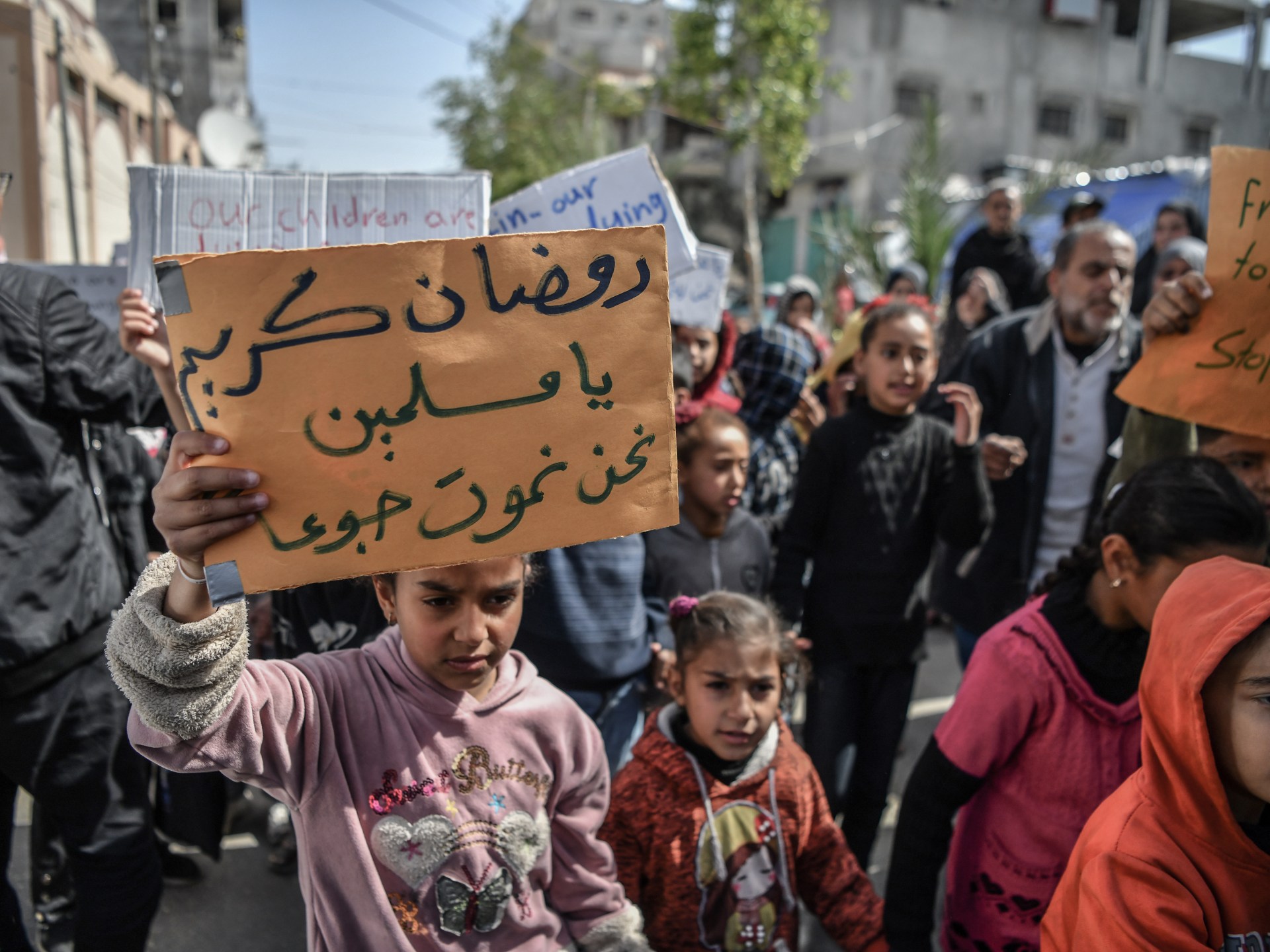Children of Gaza appeal to consciences to take action to stop the humanitarian catastrophe in the Strip with the advent of the month of Ramadan (Anatolia)
Relief officials revealed that Israel refrains from issuing new visas or renewing old visas for foreign employees in international non-governmental relief organizations, which exacerbates the humanitarian catastrophe in the Gaza Strip.
Some aid workers who applied for visas were ordered to leave the country, with no information about when they might be able to return.
Three senior humanitarian officials and a body representing more than 80 relief groups said that the humanitarian response in war-torn Gaza faces a new challenge in addition to exhausting border inspections and continuous Israeli bombing.
Fares Al-Arouri, director of the Association of International Development Agencies (AIDA) working in the Palestinian territories, said that the visas of 57 aid workers expired last Thursday, while the visas of 42 others will expire in the next few weeks.
Al-Arouri added that at least 50 requests for new visas for employees to intensify the response to the deteriorating humanitarian conditions in Gaza and the West Bank remain unanswered.
Al-Arouri said, "We have in total about 150 jobs that we need to fill urgently two months ago, not tomorrow," considering the visa ban "an integral part of the widespread Israeli blockade on relief and humanitarian aid operations in both the West Bank and the Gaza Strip."
Difficulties
Granting visas to international aid workers is not expected to immediately ease the suffering in Gaza, but the visa freeze has left 15 organizations without managers in Israel, Al-Arouri said, making it more difficult to do what little work they can do.
Three senior humanitarian officials said that work visas for international non-governmental organizations require a letter of recommendation from the Israeli Ministry of Welfare and Social Affairs, which has not issued one since last August.
The officials reported that after October 7, the Israeli Ministry of Foreign Affairs said it would not be able to issue new letters of recommendation, but foreign aid workers were granted a comprehensive extension of their visas until February 8.
The director of an NGO working in the field of water and sanitation in Gaza and the West Bank, whose visa has expired, said that it is possible to remain in Israel by obtaining a document confirming the submission of an application for a new visa.
But he noted that humanitarian officials holding this document cannot travel to the Gaza Strip and the West Bank.
“This really hinders the effective coordination and management of our operations in Gaza.”
Only two months
While the norm was to grant one-year visas to UN employees, most are now granted for only two months, most often, and one month for spouses and children.
The government agency usually does not inform applicants of any developments related to their applications, but Israel said last December that it had “cancelled” the entry visa of Lynne Hastings, the humanitarian coordinator in the Palestinian territories, accusing her of bias and adopting “dangerous rhetoric.”
A humanitarian official told AFP that in light of these statements, there are concerns that taking positions such as calling for a ceasefire would cause aid workers to be considered “enemies of the state,” which could lead to the termination of their visas and the work of their organizations.
For his part, a United Nations official, who requested to remain anonymous, said that the international organization "has also not received any response to dozens of visa applications currently."
He explained that the United Nations, which deals with the Israeli Ministry of Foreign Affairs, currently has 67 requests that have not been answered.
Most of these requests belong to employees of the United Nations Children's Fund (UNICEF), the World Food Program and the United Nations Relief and Works Agency for Palestine Refugees (UNRWA).
This comes at a time when bleak reports from Gaza speak of people eating tree leaves and animal fodder, while children are exhausted by malnutrition, in addition to major shortages in food aid, as well as medicines and other basic necessities.
Source: French

